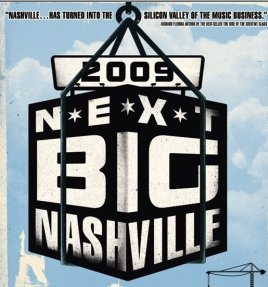
Videos by American Songwriter
It is the rare artist who makes an album – or embraces a standard of excellence that applies to 10 or 12 tracks of collected music that matters. Rarer still is the singer/songwriter/musician who is willing to learn all of those songs and perform them as a way of honoring what is — in less stringent circles – referred to as “product.”
But Guy Clark – the master craftsman who builds his own guitars and marks each with his own blood fingerprint – has never clung to the marginal, only a level of quality that defies most people’s sense of meaningful execution. To mark the release of Somedays The Song Writes You, the granite-faced dean of Texas poets brought the entire collection to life for a sold-out audience at Nashville’s intimate Belcourt Theater.
Re-assembling his recording band – guitarist/songwriter/singer Verlon Thompson, multi-instrumentalist/songwriter/singer Shaun Camp, upright bassist/singer Bryn Bright and percussionist/drummer Kenny Malone – for an evening of conjuring the varied moods and timbres of Songs, the acoustic instruments imbued Clark’s inside-out habitation of deadly sketches and nuanced falterings with warmth and generous clarity. Indeed the man whose tableau has tended to be grounded in American humanity and moments is not one to judge so much as assess, to recount rather than sermonize.
And in that is his most deadly aim. Whether it’s the bawdy detail-setting and unflinching reality of “Wrong Side of the Tracks,” the exquisitely detailed portrait of a sailor’s reason for being and final days “Eamon,” or the dignified ownership of chaos and consequences “The Coat,” the bottomy, confessional tone of Clark’s voice – a bit more gravelly than in the past – offers kindness in its stoicism, and an acceptance of clay-feet and guilty pleasures.
Indeed, whether ratcheting up the drama of the O. Henry-esque “The Guitar” through his own slight acceleration as the verses gathered momentum, or evoking the more languid philosophy that is the almost exhaled truth of “Hemingway’s Whiskey,” the songs were rendered in ways designed to deepen their meaning and offer a sense of “alive in the now’ to what was captured in the studio. Even the gentle strength of best friend and fellow traveler Townes Van Zandt’s “If I Needed You” was rendered as both calming reassurance and the willingness to seek the same.
With his “aw shucks I know you know how these things go” insiders’ narrative, Clark gave everyone a sense they’re part of the Music Row racket without ever lowering himself to the shillery that makes 16th Avenue’s manufactured songsmithery legend. Instead, it came off as a reasonable alternative of taste, heart and the sense of what is possible if you don’t settle for “good enough.”
After closing the opening set with “Maybe We Can Paint Over That,” again a testament to truth that never deifies nor condemns those moments of indulgence and venality, Clark and his acoustic masters returned for a set of his expected classics and step-out songs for the band, most notably Camp’s quick-picking, high spirited “Sis Draper.”
Running the gamut of well-loved – a haunted rendering of “The Randall Knife,” a well set-up story for the unsentimentally sentimental “LA Freeway” – and more modern offerings – the late night beer joint postcard of “Out in the Parking Lot” and wistful romantic glimmer of “Dublin Blues,” – the night was a seamless exhibition of what songs well-tendered can mean. Clarity in a world gone wild, comfort in the churn of decency’s erosion, hope for our better selves emerged from the tales, characters and confessions.
Set-up with “This is a song about my Grandmother’s boyfriend… who taught me how to cuss and spit and whittle,” Guy Clark defined in a matter of verses and one of his most panoramic choruses what it means to be a man in full with “Desperadoes Waiting For A Train.” It is the tenderness of the passage of time, the values transferred and the lessons given as a matter of life shared that show the measure of a man’s character isn’t how tough, but how deep his soul.










Leave a Reply
Only members can comment. Become a member. Already a member? Log in.